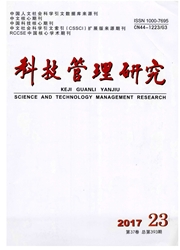

 中文摘要:
中文摘要:
分析了会计准则变革对财务报告信息效率产生影响的路径,利用多层次回归的中介变量检验、Bootstrap检验等方法验证了研究假设。研究发现:会计准则变革后,分析师的数量显著增加,但盈余预测的准确性显著下降;会计准则变革前,企业的应计盈余管理水平与真实盈余管理水平总体上相差不大,但会计准则变革后,上市公司的盈余管理行为发生了改变,表现为应计盈余管理虽没有显著变化,但真实盈余管理显著增加;会计准则变革促使上市公司更多地采用真实盈余管理手段调节盈余,真实盈余管理增加是导致分析师盈余预测准确性下降的原因之一。
 英文摘要:
英文摘要:
This paper examines the effect of the accounting standards refamin China on the irfamation efficiency of financial report.We build a research framework to describe a path that accounting standards reform has influence on financial analysts' faecast erras.Accounting standards reform may not stop accruals manipulating but increase real earnings management activities which will blur the earnings reported and make forecasting less accurate.The results cf intermediary variable test consistent perfectly with cur hypothesis,and weconclude that economic,policy and market environment may decide the enforcement effects of new accounting standards.The reform should pay more attention to the influence on core value and the operations of ccrporationa Meanwhile,more reliable and accurate analyze made by well-qualified analysts is absolutely essential tothe raise of information efficiency.
 同期刊论文项目
同期刊论文项目
 同项目期刊论文
同项目期刊论文
 期刊信息
期刊信息
